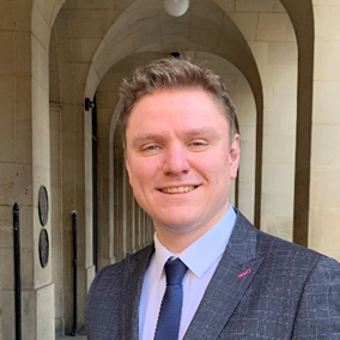Rachel Tunnicliffe is the senior partner and head of trusts, wills and estates at Harrogate-based Raworths. She explains why legal firms should value, and foster, emotional intelligence in lawyers.
People tend to regard lawyers as “clever”, by which they might mean academically able, analytical, thorough and efficient. Hopefully that’s not wrong.
But would people generally think of a lawyer as empathetic, emotionally intelligent, intuitive? Perhaps not, but these soft skills are essential in many areas of legal work, and failing to value and develop them can seriously impact effectiveness.
In high-net-worth private client work, dealing with several generations of a family is common. Whether it’s helping the oldest generation to gradually pass on assets and responsibilities, or helping the youngest generation to start learning how to handle wealth, it requires sensitivity, skill and experience.
This is the context for good succession planning advice, trying to achieve smooth transitions and avoid disputes. If done well, it can add huge value and helps retain that family as a client for the longer term.
Negotiating difficult terrain
Helping young adults on their journey of understanding the responsibilities that come with family wealth can cover protection against possible future divorce, wills, and gentle and gradual education about trusts, family investment companies, family constitutions and whatever other structures that family might have in place.
This might sound like a lot of explaining and information delivery, but the key is in listening and watching, noticing the areas where someone feels uncomfortable or threatened, where they bristle. What they don’t say can tell a lot, and can enable you to move sensitively forward, working round obstacle areas rather than unwittingly barging through them.
At the other end of the scale, the same skills are needed in helping the older generation to decide how and when to hand over the reins to the family wealth and the businesses that might be the source of that wealth. That handover can be difficult emotionally, particularly if that person created the wealth.
There are also questions around whether control and benefit should be shared equally between members of the next generation or weighted to those who work in the business. What about a family member who has married someone unsuitable and the risks of a messy divorce?
Developing emotional intelligence
This all requires of the adviser a sensitivity to the different relationships within a family. Each person may have their own style of communication, their own level of openness about sharing information, their own attitude to the source of the wealth (perhaps a family business) and their own attitude to things like philanthropy. It demands the ability to pitch information and explanation at the right level for different family members who have different degrees of understanding and aptitude.
The skills to deal with these issues come more easily to some personality types than others, but can be developed. Training can include on the job training, mentoring and coaching, but some knowledge of different personality types and their different communication styles is very helpful.
Often law firms use some form of psychometric testing and analysis in recruitment or teambuilding, but may not think to apply that knowledge base to work for clients in this field of work where the human element is the heart of everything. Basic courses in NLP, body language and communication styles can help too.
Trusted advisers
Law firms have always rewarded staff with great technical legal skills, and the work ethic to produce big bills; some have looked out for those young lawyers with the aptitude to become rainmakers or work generators and helped them to develop. A few now try to spot those with the ability to manage and motivate teams.
If we look out for those with high emotional intelligence, they can be encouraged in developing skills and expertise to become the sort of lawyer who achieves the coveted “trusted adviser” status. They can help wealthy clients navigate family and business turbulence with minimal damage to relationships and assets.
Once identified, those people should be developed and encouraged, their experience broadened and deepened to equip them to drive client service to meet these complex needs. The long-term benefits of retaining those intergenerational clients are good for the clients and good for the business, and stretching people in this skill set will prove rewarding for lawyers with this dimension to their mind set.
Visit
- Connect with Rachel Tunnicliffe via LinkedIn










